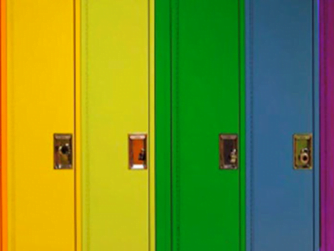
Why Bother to Become a Teacher?
Go search on Google “number of new teachers who quit,” and you’ll find pages and pages (115,000,000 results in the search I did) of statistics that all read about the same: “Close to half of teachers with five or fewer years of teaching have considered quitting”, or “A teacher shortage is coming as districts struggle to fill vacancies with qualified candidates.” The business information website Quartz adds that the biggest reason teachers leave the profession is dissatisfaction with the job: “lack of opportunities to advance, the meager administrative support, or the working conditions.” The Learning Policy Institute estimates that 200,000 teachers leave the profession every year, two-thirds for reasons other than retirement. Teachers quitting? It’s a thing.
So many of the teachers who are quoted on these pages talk about the lack of support from the administration and the public. Some are fed up with poor student behavior and lack of parent backup. Others feel that the pay is inadequate for the amount of work that the profession demands, well, demands if a teacher really gives a crap about the quality of their work.
Ain’t No Walk in the Park
Teaching is a demanding job. Anyone who thinks being a teacher is a walk in the park hasn’t walked in a classroom lately. Teachers are charged with developing the skills and abilities of children who are increasingly far below where they should be. For example, in my 7th-grade English class, most students read at the 3rd to 5th-grade level. Most cannot write a paragraph, and few grasp sentence structure. (I’d need a whole different rant to get into the reasons why I think this is happening!).
Yet, in 180 days, I’m expected to correct eight years of miseducation or missed education, as many of our students have attendance issues, come and go and change districts throughout the year, or cause trouble and end up in the office instead of class ( if it’s even that many days with all the assemblies, fire drills, minimum days, field trips, etc. that steal class time).
Teachers must wear a variety of hats. We don’t have the luxury of just imbuing young minds with knowledge. Within the classroom each day, teachers are counselors, referees, stand-in parents, proctors, pencil dispensing machines, inventors, actors;….. 36 different students have a lot of different needs, and we are expected to meet them all.
Teaching is the only job I can think of that requires a person to leave step-by-step plans when they will be away from the classroom. This is why you’ll find many teachers will opt to come to work sick instead of having to go through the trouble of writing lesson plans with the very real possibility of her class being left to an inept substitute (babysitter) who won’t follow them anyway. Plus, there’s the added bonus of having to come back and read the sub’s report about how horribly the class behaved, and now you have to make a bunch of parent phone calls.
Paid Vacations! Uh, no…
A teacher’s day doesn’t end when the bell rings. Many volunteer to supervise student clubs or have duties that require them to return to school to monitor dances, parent information evenings, or sporting events. This does not come with extra pay.
Many teachers take work home each night. Grading papers or finishing lesson plans, calling parents, or creating posters for their classrooms are all part of the job that happens after the bell. Teachers have families and children and other commitments outside of work, too, so teachers must be excellent multitaskers and have families that understand and can forgive an occasional absence. It comes with the territory, but still, it can wear you out after a while.
Oh, and all those “holidays” teachers get? Well, those are unpaid. Most teachers are paid for 184 days of work. Winter Break? Not paid. Spring Vacation? Not paid. There are no paychecks coming from July through October, so teachers will partition up their paychecks and save for the summer or take second jobs to make ends meet.
Don’t forget, these are highly educated people, the majority of whom have master’s degrees. In fact, “Beginning teachers earn about 20% less than individuals with college degrees in other fields, a wage gap that can widen to 30% for mid-career educators” (The Learning Policy Institute).
Not for the Weak
For all the work that is involved in this profession and the devolving amount of respect that seems to come with the job nowadays, it’s no wonder to me that many who start out full of hope and desire to change the future for the better become disenchanted with the profession when they see what they actually have to do.
Don’t do this job if you’re looking for “easy.” It’s so not that. Don’t waste your money on a credential if you get your feelings hurt easily. Parents and kids can be confrontational. Don’t do this job if you think you’ll have so much free time. You won’t. Many of us work during the summer or spend time revamping and improving lesson plans for the next year.
Do this job if you deeply want to make a difference; if you have strength, optimism, grit, and the ability to fail, get up and fail again. Do this job if you genuinely love “the animal,” and you must love the toughest animals the most because they need you the most.
So, You Still Want to be a Teacher?
If you want to be a teacher, spend time volunteering in a classroom with students at the age level you want to teach. Talk to teachers. Substitute in districts where you want to apply. Attend school board meetings to see how educators are supported. If you just rely on your college preparation courses to get you ready for what it’s really like, you may find you’ve bit off more than you want to chew.
Of course, you’ll do student teaching, but that’s not what being entirely responsible for your own class is really like. I wanted to be a teacher from the time I was in first grade, but I still cried every day of the first year I taught. I didn’t quit because I was fortunate to be in a school with wonderful, supportive teachers who would look in on me and offer me help and advice. I spent my entire 36 years there, and it’s still an amazing place to work.
Why It’s Worth It
For all this bitching, I actually really love my job. For one thing, it’s never boring. I’m still learning and improving my craft. I’m constantly re-evaluating my practice, changing lesson plans each year to adapt to my students. I still believe that I can make a difference in a child’s life. I might be the only positive force they have, the only person that believes in them. I might say one thing that has the power to change a child’s life for the better. I get to have an impact on the future.
Anymore, it is a thankless job. It’s rare when a student will return and let you know the positive effect you had on their life. Still, on the occasion that it does happen, it makes all the bad days fade away, all the challenges, all the times when you woke up in the middle of the night worrying about a lesson, or a kid, or something you forgot to say or do, worth it. Because of my job, I’ve become a better parent and a better friend. I’ve become a better human. The bottom line is that NO job is more important than being an educator. The quality of the rest of the world depends on it.
That’s why I bother.
Resources used to create this episode:
Which States Have the Highest and Lowest Teachers’ Salaries
We followed 15 of America’s teachers on a day of frustrations, pressures and hard-earned victories
Why Teachers Quit – Educators Share The Reasons Why They Leave













